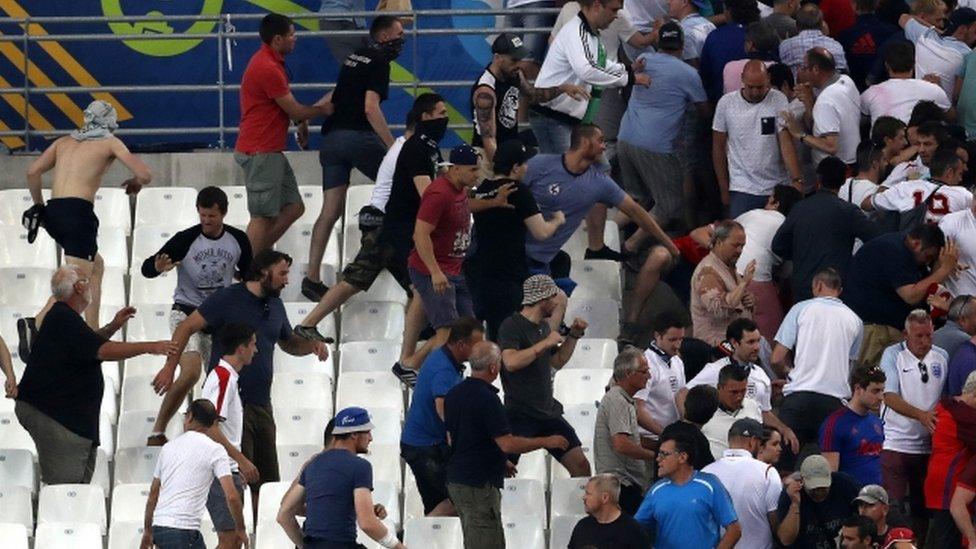Euro 2016 violence: What do Russian fans say?
- Published
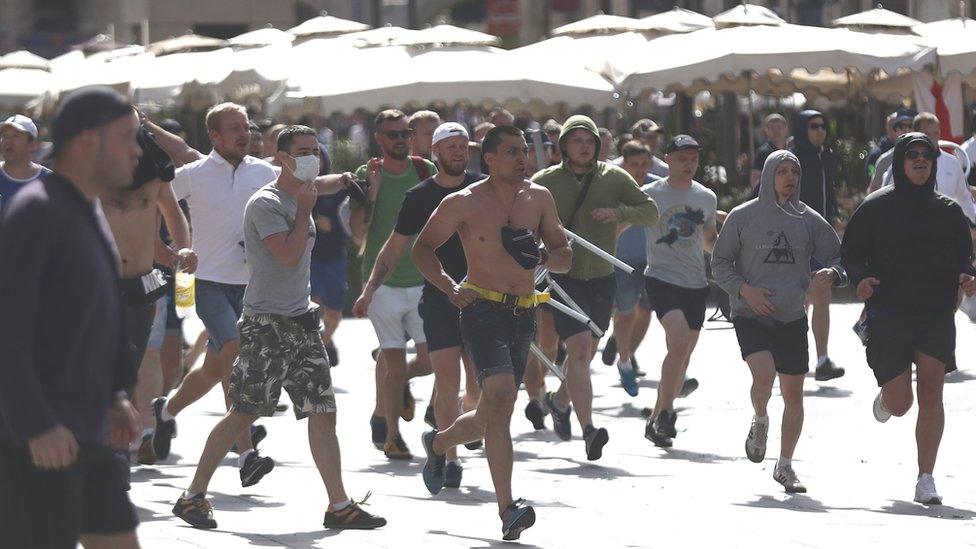
Russian football fans charge at England fans in Marseille. Zealous fans often film and comment on violence between rival groups
Ever since violence broke out in Marseille on Saturday, the spotlight has increasingly been trained on the Russian fans involved in clashes before and at the end of Russia's 1-1 draw with England.
Uefa and French prosecutors have given their verdicts, as have journalists across Europe and in Russia itself. But an eye-opening version of events has emerged from Russians caught up in the riots.
'Good old street violence'
"There were eight of us, moving around central Marseille near the Old Port in two cars, bathing in the atmosphere of good old street violence," writes one Russian, named Molodoi, in his online account of the day's "action".
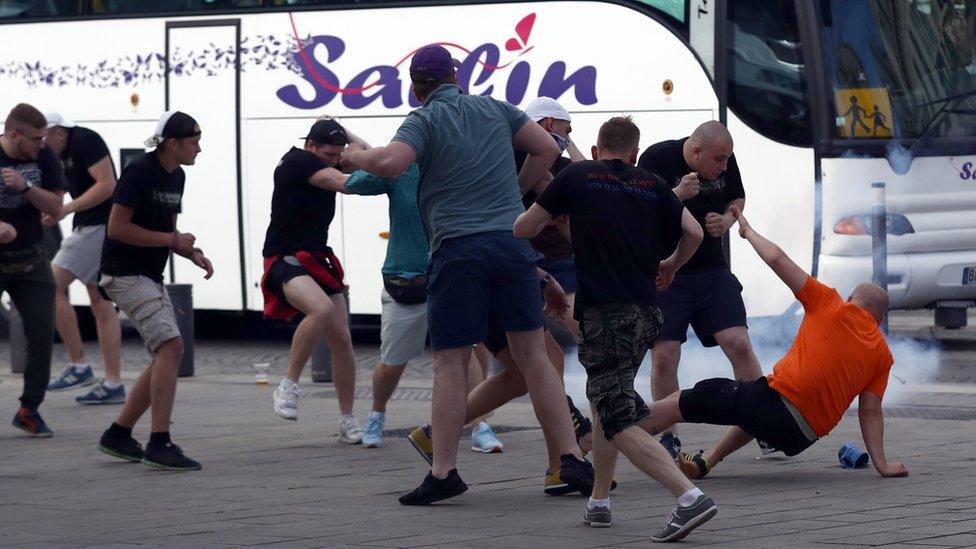
Some high profile figures have praised Russian fans and urged them to "keep up the good work"
He goes on to describe, with almost military precision, a brawl with a much larger group of English fans, culminating in a hasty exit by the Russians. "When they realised there were only a few of us, they got cheeky and swarmed us. Pure British style. But that is their right - our low numbers are our own problem," he explains.
Groups posted videos on Russia's social media, with some fans carefully positioned to film the fighting.
A "cameraman" provides commentary, external on the unrest while an elevated camera angle adds to the impression of a football match in progress rather than a fight.
Prior preparation and planning
The larger Russian hooligan "firms" have websites of their own.
These are primarily used to plan match-day events such as choreographed stadium displays known as "tifos", fireworks and, of course, organised fights, external against opposing clubs' firms, usually held on the outskirts of the host city.
Ultras, football fans known for extremely zealous support, also use the sites for post-action analysis, boasting about any official or media criticism of their behaviour.
"The British press are calling us animals, saying that their fans, women and children were running from us. But we all know the British are far from being children," says one user on the Orel Butchers website, external, a well-known firm that sent a "delegation" to Marseille at the weekend.
While the level of organisation is a reminder of the English firms of the 1970s and 80s, the Russian ultras make no special effort to emulate them.
Their English predecessors went to great lengths to avoid wearing club colours, preferring designer brands such as Lacoste and Fred Perry. But today's Russian hooligans wear their allegiances on their sleeves, often donning custom T-shirts, external bearing the logos of their firm and supported club.
"Keep up the good work"
Despite criticism from Russian Sports Minister Vitaly Mutko, some public figures in Russia have condoned and even encouraged the violence.
Igor Lebedev, a Russian Football Union (RFU) official and MP from the populist Liberal Democratic party, tweeted that, external there was "nothing wrong with fans fighting". He told them to "keep up the good work".
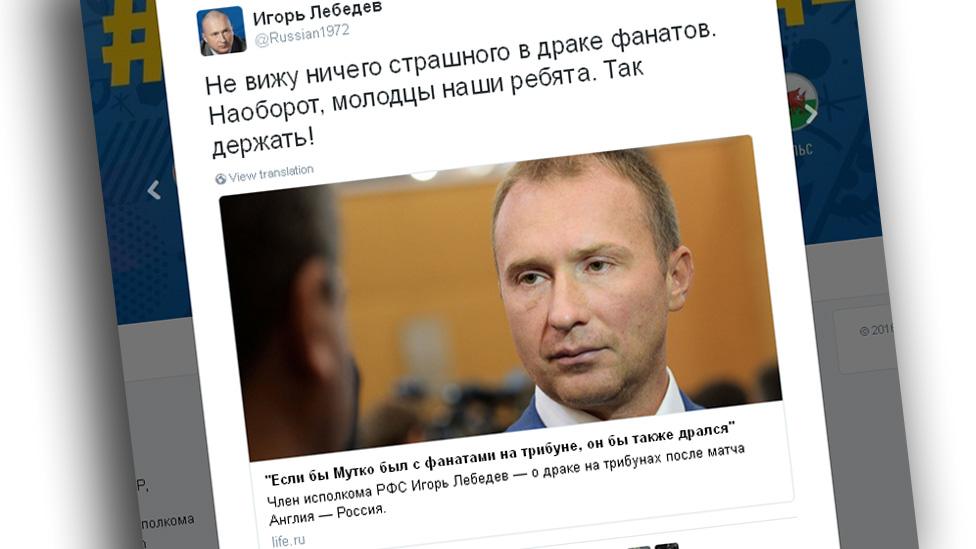
Russian MP Igor Lebedev saw "nothing wrong with fans fighting"
Meanwhile, radio journalist and former RFU spokesman Andrei Malosolov wrote a lengthy blog post on the "Russian fans' victory at Marseille port", praising the ultras' fitness levels and "stylish" look, as well as their ability to fight.
"Are the Russians not worthy of respect for their fearlessness?" he said, adding that "at the very least, they gave a kicking to citizens of a country that is, both historically and geopolitically, Russia's greatest enemy".
BBC Monitoring, external reports and analyses news from TV, radio, web and print media around the world. You can follow BBC Monitoring on Twitter , externaland Facebook, external.
- Published13 June 2016
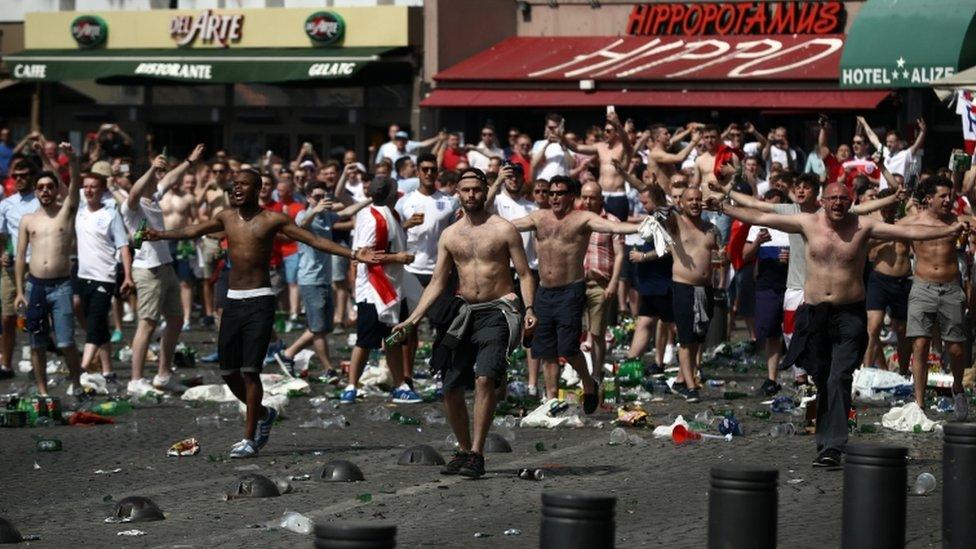
- Published12 June 2016
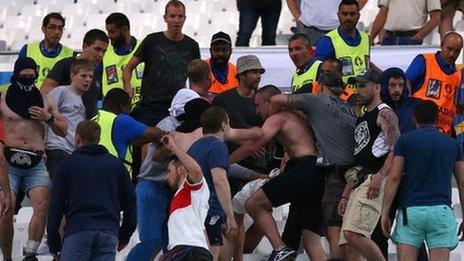
- Published12 June 2016
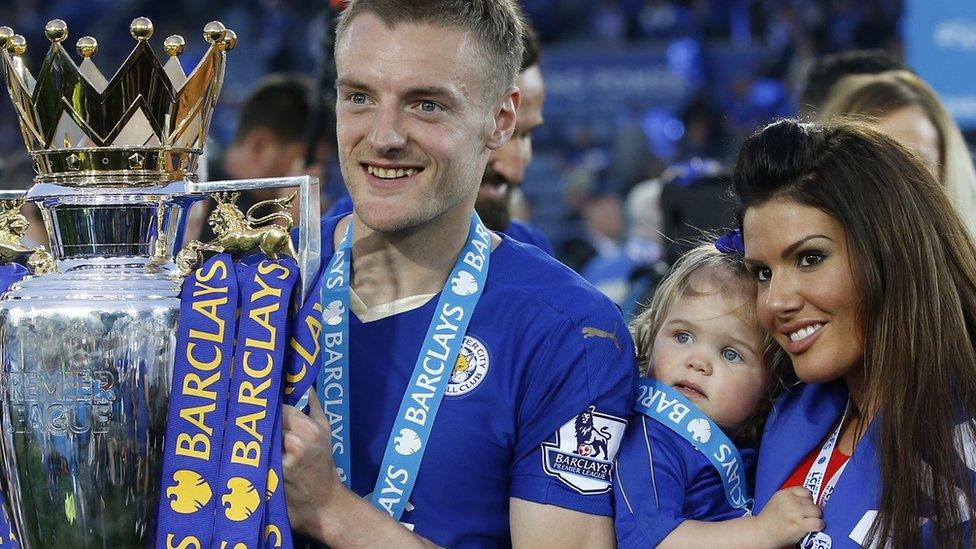
- Published12 June 2016
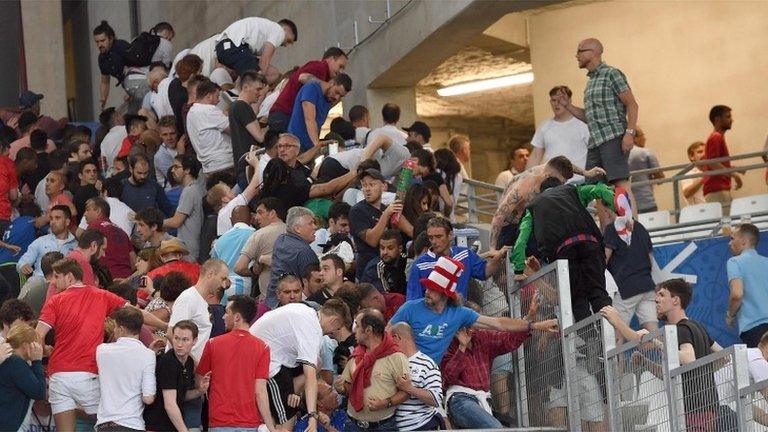
- Attribution
- Published12 June 2016
